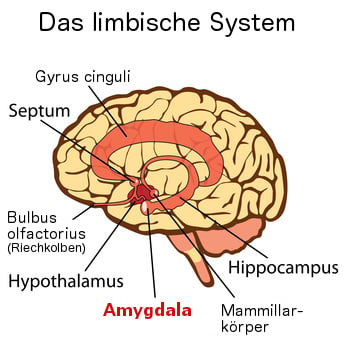Differentiation of test anxiety and normal excitement
Whether it’s a job interview, a state exam, a driver’s license or a physics paper – in the course of a lifetime, everyone has to endure several exams. Many handle the associated challenge with admirable composure, while others are driven to sweat by exam anxiety. It accompanies examinees in numerous situations and appears in various forms, such as presentation anxiety, stage fright, performance anxiety or speech anxiety.
 Test anxiety is accompanied by both mental and physical sensations. In particular, it is the vegetative symptoms that can make life difficult for those affected. In addition to inner restlessness, hyperventilation and palpitations may occur, and in special cases, sweating and hand tremors.
Test anxiety is accompanied by both mental and physical sensations. In particular, it is the vegetative symptoms that can make life difficult for those affected. In addition to inner restlessness, hyperventilation and palpitations may occur, and in special cases, sweating and hand tremors.
Often, this can result in concentration deficits, with test anxiety preventing mobilization of what has been learned and attention to the exam questions.
Depending on the extent and duration of the experienced anxiety, a distinction is made between non-diseased and already diseased anxiety.
In most cases, it is a normal anxiety and not a pathological disorder.
When fear paralyzes concentration and learning ability
Exam anxiety becomes noticeable through a change in muscle tension and a change in the autonomic nervous system. This fear is nothing negative at first. Because a healthy amount of excitement and thus stage fright can activate us and spur us on to top performance. In some cases, however, the fear response can inhibit and stress the examinee.
Responding to certain situations with test anxiety is learned. Finally, there are also many students and fellow students who, despite poor preparation, are much more relaxed about the exam. Speech anxiety, presentation anxiety, performance anxiety and the like are not so much triggered by the exam as such. Rather, one’s own experiences and attitudes play a decisive role here. Depending on how the examiner and the exam situation are subjectively assessed, what significance the exam has and how one’s own competence stands, the body will react with performance anxiety or speech anxiety.
Many people put themselves under pressure by assuming that the outcome will be negative or by drawing the wrong conclusions. In their imaginations and fantasies, those affected see themselves standing helplessly in front of the audience with their fear of speaking. Specifically, they fear embarrassing themselves and not being able to meet the performance requirements. In the process, every single thought automatically causes a change in feelings as well. Test anxiety can be triggered by a variety of factors, including social norms, previous experience with test situations, and parental upbringing style.
songs, it is not enough to understand what causes and why we get test anxiety. Ultimately, anyone who is hindered in their daily lives by their fear of exams wants to get away from it. So how does this work?
A good possibility to be able to face your exams in the future without oppressive feelings of anxiety is offered by EMDR in coaching or self-coaching (in case of non-diseased exam anxiety). Find out more at Overcoming Anxiety in EMDR Self-Coaching with EMDR Goggles REMSTIM 3000.
How we can manage our fear

Overcoming fear in EMDR self-coaching with the EMDR goggles REMSTIM 3000
How we can unlearn our fears in self-coaching with EMDR and the EMDR glasses Remstim 3000. Fear reactions sometimes make themselves felt as quiet sensations, but more often than not,

Overcoming fear in EMDR self-coaching with the EMDR goggles REMSTIM 3000
How we can unlearn our fears in self-coaching with EMDR and the EMDR glasses Remstim 3000. Fear reactions sometimes make themselves felt as quiet sensations, but more often than not,









